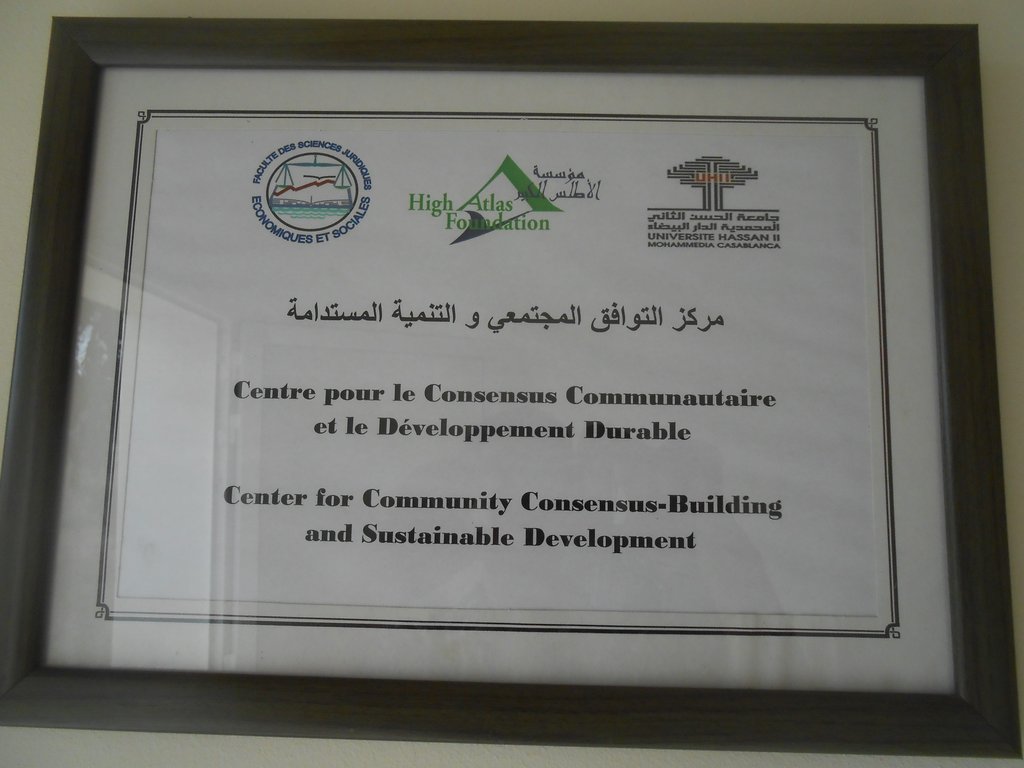By Charlie Alcorn | Communications Intern
In early 2011, amid large public demonstrations, regional political unrest, and dramatic changes in neighboring states, Morocco initiated a series of reforms to strengthen human rights, democracy, good governance, and economic transparency. The centerpiece was a revision of Morocco’s constitution. The new constitution aims to strengthen the legislature, and judiciary; to promote human rights, women’s equality, and Amazigh cultural rights; and to encourage decentralization.
Despite Morocco’s newly revised constitution and the Government’s commitment to policy reforms for democracy and sustainable development, the degree to which the new constitution represents a significant change depends on the details of constitutional implementation, the degree to which CSOs and political parties effectively leverage the political space and roles accorded to them, and whether they have the capacity and ability to effectively contribute to a genuine democracy.
Participatory research assessments conducted with 140 activists and leaders from 94 CSOs in two urban communes (Mohammedia and Ain Harrouda and four rural communes (Beni Yekhlef, Sidi Moussa Ben Ali, Sidi Moussa Lmajdoub and Chellalat) in the Mohammedia province (conducted in 2012 and 2013 by 130 university students with three members of HAF’s project team), highlight the areas in which there is a need to address the structural challenges, including:1) the lack of full participation in creating Communal Development Plans, 2) the absence of knowledge surrounding the legal framework to advocate for policy reforms, 3) lack of good governance practices within CSOs which is impacting their credibility with their constituents and partners, 4) the lack of capacity to develop effective advocacy strategies and attract funding and support.
The High Atlas Foundation will partner with the National Endowment for Democracy to meet the critical need for the provision of legal services for civil society organizations (CSOs) and marginalized communities and groups, particularly women and youth.
The project will create a sustainable legal aid program (LAP) at the Faculty of Law, Economic and Social Sciences (Faculty) at Hassan II University in Mohammedia, located between Rabat and Casablanca.The participants of a nine month experiential skills-building program will include: a) 20 CSO activists and communal leaders from the Province who will be equipped with legal knowledge, analytic skills, and capacity to plan and manage participatory advocacy strategies leading to legal and political reforms and b) 20 law students who will build their applied skills through providing (with professional supervision) legal counseling and assistance for CSO activists and communities from 6 communes in the Province of Mohammedia.
The project will be done in three phases. The first phase will be coordinating the program, preparing materials, and identifying students, CSO activists and community leaders. After completing phase one participatory planning workshops and legal services will be provided to the students invited to the workshops. The final phase will focus on the implementation of advocacy strategies to address challenges and issues identified over the course of the workshops and post project surveys will be conducted during this phase.
Project reports on GlobalGiving are posted directly to globalgiving.org by Project Leaders as they are completed, generally every 3-4 months. To protect the integrity of these documents, GlobalGiving does not alter them; therefore you may find some language or formatting issues.
If you donate to this project or have donated to this project, you can receive an email when this project posts a report. You can also subscribe for reports without donating.
Support this important cause by creating a personalized fundraising page.
Start a Fundraiser